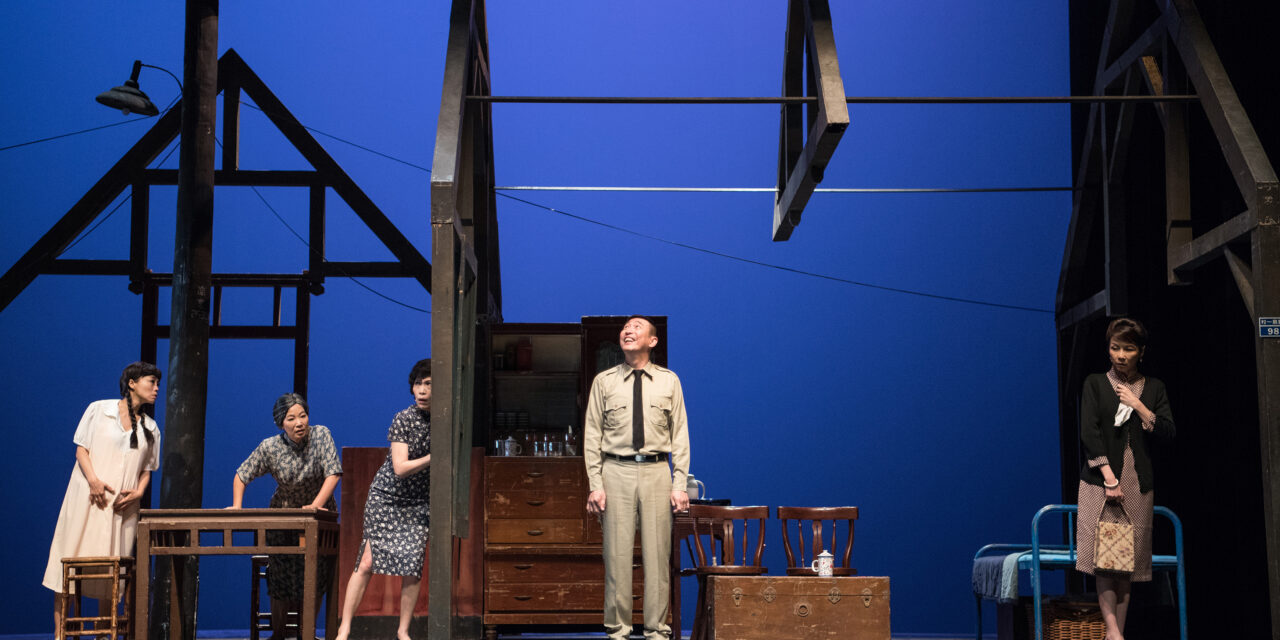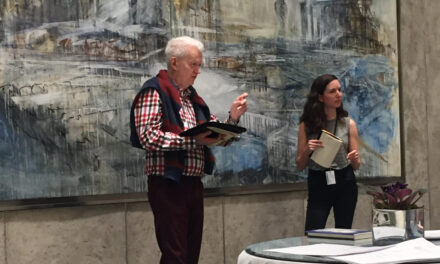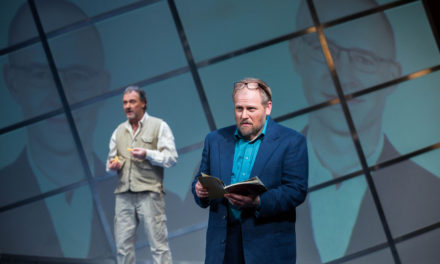US-born, Taiwan-raised theatre director and playwright Stan Lai (Lai Sheng-chuan) has enjoyed widespread critical and commercial success within and beyond Asia. His original plays, which include A Dream Like a Dream and Secret Love in Peach Blossom Land, are well-known for combining innovative stage designs with epic storytelling. He is also the author of a best-selling book on creativity. Michael Cheuk talks to Director Stan Lai ahead of the Australian premiere of The Village at the 2019 OzAsia Festival.
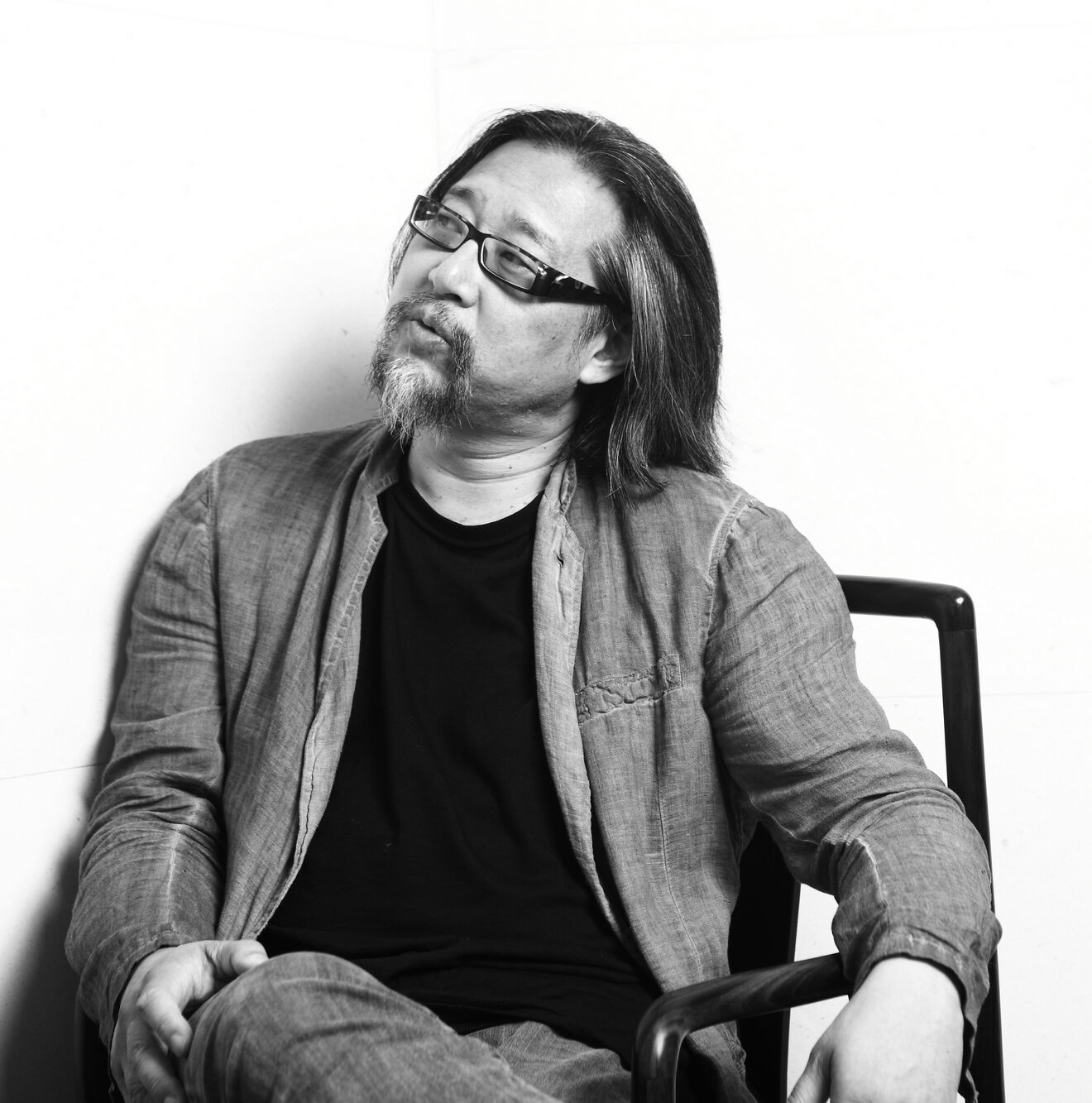
Director and playwright Stan Lai (Courtesy OZAsia Festival)
Michael Cheuk [MC]: This is the 10th year of the OzAsia Festival. What are your thoughts about the Festival and how did the idea of producing The Village at the Festival come about?
Stan Lai [SL]: We’ve been invited by the OzAsia Festival for the last couple of years. I met Joseph Mitchell, the artistic director of the Festival in Taipei and in Wuzhen Theatre Festival, which I help to administer. He was very keen to invite us to perform at the Festival. Last year, we did Secret Love in Peach Blossom Land, and I guess they enjoyed it so much that they invited The Village for this year.
MC: What can the Australian audiences expect from The Village?
SL: When we first staged The Village in Singapore, which was a year after we wrote the play, I was curious about how the Singapore audience would react to it. It ended up being a standing ovation and the Singaporeans never do that. They explained it is because they are also from an immigrant society.
And I think this also holds true in Australia. I’m not expecting any specific reception, but judging from last year for the production of Secret Love in Peach Blossom Land, I found the audience was amazingly in-tune with what was happening on stage despite the language barrier as we performed in Mandarin Chinese. Maybe we had 40-50% of Chinese audiences last year. I don’t know what’s going to be like this year. But the non-Chinese audience, to my surprise, was extremely in-tune. And when we toured the United States in the past, the non-Chinese audience also tended to pick it up very well. I don’t know what to expect [in Australia].
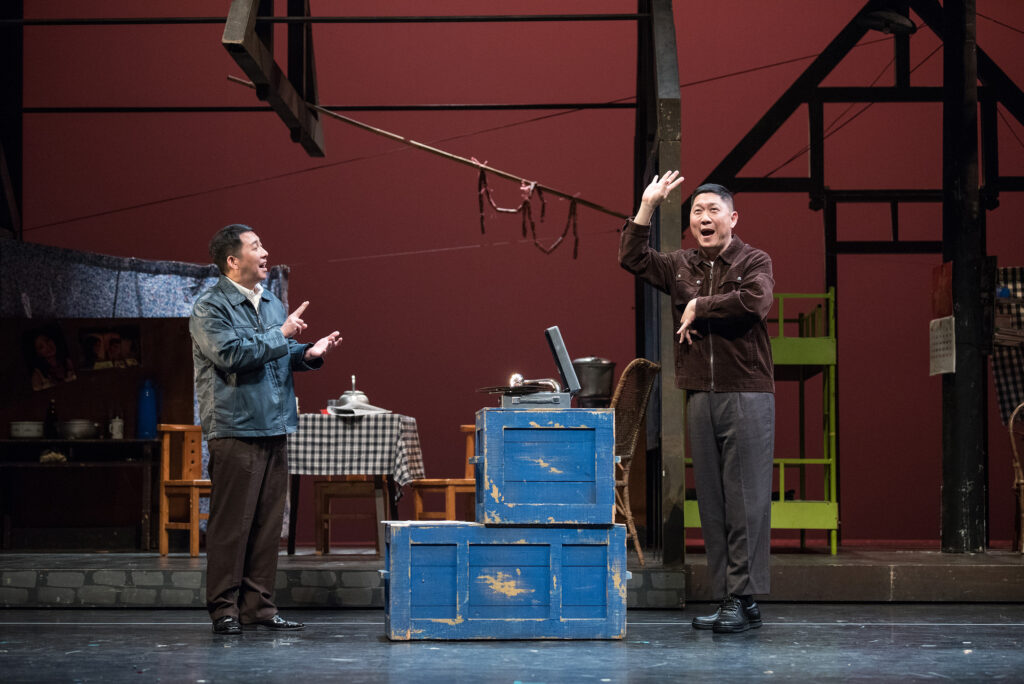
The Village by Stan Lai (Courtesy OZAsia Festival)
MC: A common feature of your plays is that they are always both entertaining and intellectual at the same time. Is this emphasis on being entertaining to the masses and intellectually-pleasing for the more serious, demanding audiences, something on your mind when you write your plays, including The Village?
SL: I don’t think too much about the audience. Don’t take this the wrong way but I don’t consider too much of the audience when I write my plays. I’m not considering how to please them. What I do for every project is different and so you try to create what is best with conditions of what the project has. And The Village project was so close to us in terms of their lives, the families, even the people we grew up with.
The Village is about the military independent villages in Taiwan and there is a sort of tradition to write about these villages in literature or documentary films, and they are always extremely bleak, not always pleasant and happy. When you have a bleak background, and you write everything very dark, then it will become very dark indeed. When you have a dark background and make light of these things, it changes the whole equation. Finding cheerfulness in a hopeless situation is one of the driving points behind the creation of the play.
I remember showing some videos about half an hour of the play in Berkeley, and my old director Robert Goldsby came and saw them and then he hugged me and he called me Anton Chekov-esque. I wasn’t really thinking about Chekov when I was writing The Village but now that I’ve seen it probably a hundred times, there is definitely some Chekov there, and how you can make a scene funny or tragic with very small bits, it turns sad or turns funny. And I think that’s how it goes throughout the three hours of The Village. And I think that’s how people can relate to it because it’s close to real life.
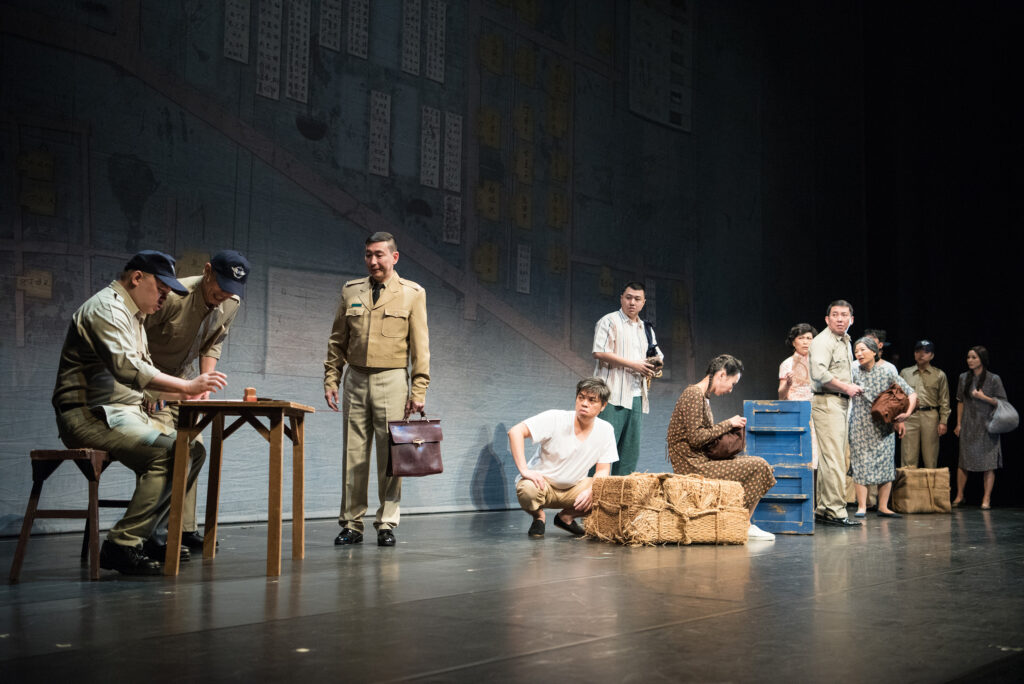
The Village by Stan Lai (Courtesy OZAsia Festival)
MC: There is always a historical element in your plays. Do you think there is a sense of responsibility in the back of your mind to do these histories and stories tastefully?
SL: For sure. Being tasteful is certainly part of the equation. When I was writing The Village, the most persistent thing that came to my mind was I had to get this right for the villagers. I want them to see this play and nod their heads and say “Yes this is how I experienced it.” On the opening night, we got a standing ovation at the National Theatre of Taipei and it just went on and on. And everyone was very moved. My analytical mind kicked in: The audience, of course, is applauding the cast. But no, they are also applauding the characters of the story, these characters who survived. Later on, when I talked to people from the villages who came to see the play, they all emphatically said: “Yes this is the experience, thank you very much.” And this is probably the most satisfying thing about directing this play.
MC: You’ve also published a best-selling book on creativity called Stan Lai On Creativity. It is marketed and often received as a self-help book on how to tap into our inner creativity, for example, by dividing creativity into method and wisdom. Do you think this book can also help us understand your own artistic vision?
SL: If you are interested in how my mind works when I am writing, definitely that book is certainly a clue. But the book was not written for that purpose. The book, as you know, was not a collection of articles over the years. It’s really purposely written to be a self-help book on creativity. I am actually in the process of writing an English version of the book. It will be a rewrite and not a translation of the Chinese version because it’s going to be so different for a Western audience. In the Chinese version, I was comfortable in referencing my own works, which I wouldn’t do in the English version because people in the West aren’t that familiar with my work. It’s not one of those “A equals B” things where you can find direct references to my work in that book. But it’s an overall thing in that you get an idea of where my mind is at. In this sense, it helps you understand my work and how I write it.
MC: Whether it is your creative works, or your self-help book, or your personality in general, I get a consistent sense of this in-betweenness of popular and avant-garde. You are always able to talk about deep things in an accessible way. Is it a product of deliberate training or past experience?
SL: If you go back to the book on creativity, it deals a lot with motivation. Why are you an artist? Why do you write these things? For many artists, part of their motivation is to prove that they are at an intellectual or artistic level. But it’s more to do with my Buddhist training which reminds us to keep an eye on our ego, whether you are successful or not. I don’t think I’m successful. But I am focussed on whether my ego expands too much. I just try to keep it simple and write a work that is worthy of our audience. I mentioned earlier I don’t care about the audience. But, of course, we do. It’s just that we don’t make what we think the audience would like. That’s the Hollywood style and formula. But if you look closely at my work, a lot of it is a technical craft that resembles a lot of what Hollywood writers do too. You need the craft. But once you have the craft, what are you doing? What are you trying to achieve? It’s all a question of motivation. Can you turn your motivation outside of yourself?
MC: A lot of your plays deal with painful and complicated political issues and historical events like the history of Taiwan and the Chinese civil war. Does this ego-checking mechanism help you present history in a more objective way?
SL: If you want to treat a period of history, you have to be respectful to it and do it right. Right and wrong in history, or like the military villages, are so subjective. But again, larger issues take over these concerns. You are writing a play to convey a message to the audience, and the history is just part of the vehicle that is being used to convey to the audience. The history is not the final goal. The play is not a thesis about the history of Taiwan. This is a play. Can the play enrich our understanding of history? That is more important for a writer. Our job is not to tell the audience what happened. Instead, can the play inform us about our journey from here on? Can we learn about the details that we didn’t know before? Can we learn greater lessons? That is what theatre is about: For greater lessons to be shared for humanity.
MC: This indeed is why your plays are well-received around the world. But going back to the perspective you hold as you are writing your plays.…. Do the labels of cultural identity like “Sinophone” or national identities like “Taiwanese” or “Chinese” shape how you write your plays?
SL: I often think labels are counterproductive. They are useful to quickly describe something that is not complicated. But I think my works are complicated. And to try to put a label on it, I don’t think it will help. The current play I am working on in Shanghai called Ago, it deals with the Tibetan Plateau and New York. And then it goes to India. It’s a long play that is similar to A Dream Like a Dream in its length and the way it’s staged with the “lotus pond” [the stage surrounds the audience]. In that way, that would defy the labels you want to put on me because it will be staged in Chinese but it was first written in English at Berkley. But I often analyze myself as being different from other playwrights because I have a dual perspective that comes from being bilingual and bicultural.
MC: A lot of critics have referred to you as “the greatest Chinese-language playwright” of your generation or even ever. And now that you are 30-35 years into your career, are you concerned about how people see your work, and do you want to take a more active role in controlling the discourse around your work?
SL: My Buddhist training is always pulling at me and saying “the world and its history is so fickle, and don’t even expect people to remember you after 20 years”. And I really believe in that. I think that is a healthy way to look at it. With that said, I have been getting my things published in English and hopefully, that will happen next year. 10 plays will be published in English. Doing more work in the West means I think of myself as a bridge these days because there is so much misunderstanding between East and West. On the other hand, when we come to work, I want to narrow down the topic to “how would I see other people who would direct my work?” As an academic and an experimental artist for many years, I welcome any experiments with my work. But as I go along, I am more inclined to think: “if you are going to direct my work and my plays, and you don’t get it right, it’s not going to work.” I keep telling myself and my students and my assistants to be aware of this point and that point.
I am thinking of publishing two books of annotations of Secret Lover Peach Blossom Land and A Dream Like A Dream. The annotations will mostly be my comments or thoughts about how I would direct the plays. There will also be comments from all the actors that have performed in the play. It is in my mind for a couple of years and hopefully, we will be able to get these out. But there you see my worry about posterity: I am happy to have you do whatever you like with my plays, but I do want to let you know how, if done properly, how it would work. Because as you know, as a scholar, the big deal nowadays is deconstructing. Directors have been deconstructing for decades now. Last year, I did a version of Cao Yu’s Peking Man but when I was doing it, I don’t think anyone has ever done an orthodox version or definitive version. Like Teahouse you have a definitive version unless you are Meng Jinghui. But the audience really needs to know Teahouse in order to appreciate Meng’s version. If you want to go wild with Secret Lover Peach Blossom Land, I’d be very interested to see what people do with it.
I was at Michigan this year, and we showed the film version of Secret Lover Peach Blossom Land. It’s from 1992 and should be a real oldie, but it just feels very new. We came across something that lasts and in its uniqueness. If you want to be more unique, or try to out-unique it, by deconstructing it, I guess you will get less mileage than if you approached it with the proper sense. Take The Village as an example, every actor has its distinct voice and way of talking, and if you are a director who wants to direct this play, good luck to you because you have to know all the idiosyncrasies of the characters. But of course, that’s what you should do as a director. So these things occupy my mind but not very much.
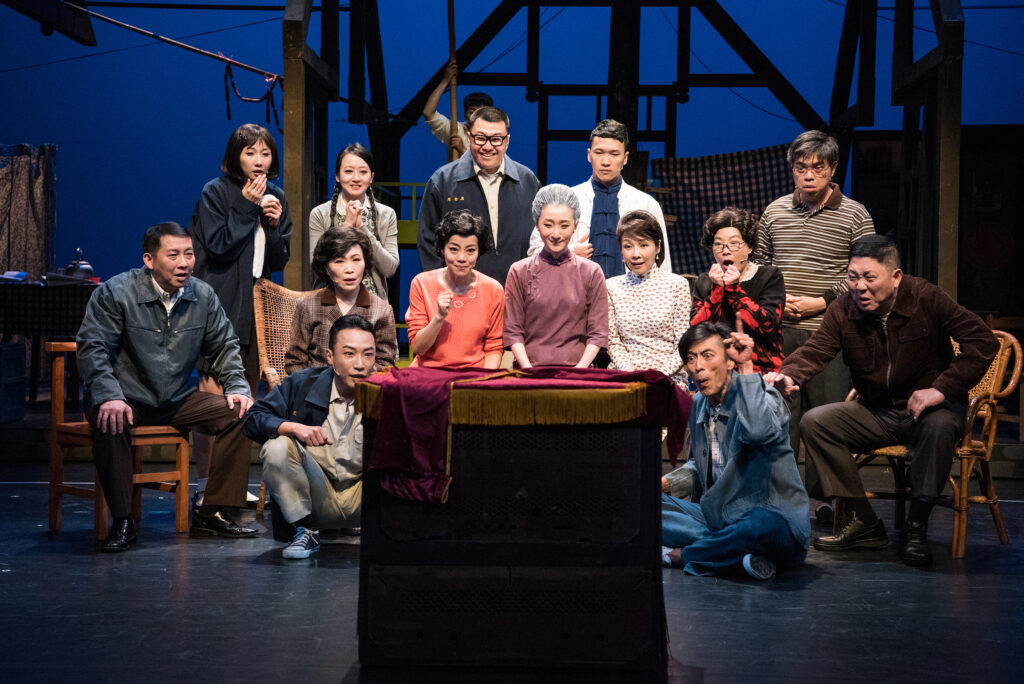
The Village by Stan Lai (Courtesy OZAsia Festival)
MC: This also touches on the issue of authorship because your plays, while the production is carefully crafted, the genesis of it is very collaborative, and involves the stories of multiple individuals. Just like how in A Dream Like A Dream, you need to know the stories of multiple individuals before you can really know a character’s story.
SL” There is a certain “depth,” or “houdu,” which is there because of all the people who have worked with me. So maybe that’s why it is a bit difficult for people to understand me. But actually, the most difficult part is the improvisational process. The word is used everywhere, and people think they know what I do, but I guess they don’t. The older I get the more I realize it’s very hard to teach my method of improvisation. People often think it is very hard to learn. It’s very purpose-oriented with set parameters of scenes with characters. It’s more and more like I am writing a play with the characters in front of me. That’s very empowering for a writer because they are there and you have helped to build them and then you put them in situations where they interact with each other. And in many ways, they tell you how to write the scene.
MC: You’ve worked very closely with theatre companies in Hong Kong, and you are very active in China too, like the Wuzhen Festival. Do you have any comments about the protests in Hong Kong right now?
SL: I don’t live in Hong Kong, so I don’t think I can speak about the protests. But we were rehearsing there when it first started. From the perspective of my work, you could imagine that if there were no protests in Hong Kong, a play like A Dream Like A Dream would be seen in a different light. The performance would be overshadowed by everything that’s been happening. So for a while, I was pretty worried whether the audience was interested in coming to see my play. And apparently, they were. It makes me think again “what’s the role of arts in society?” I really love Hong Kong, and Hong Kong has been wonderful to me. And I hope everything is well and people are safe.
This post was written by the author in their personal capacity.The opinions expressed in this article are the author’s own and do not reflect the view of The Theatre Times, their staff or collaborators.
This post was written by Michael Ka Chi Cheuk.
The views expressed here belong to the author and do not necessarily reflect our views and opinions.

